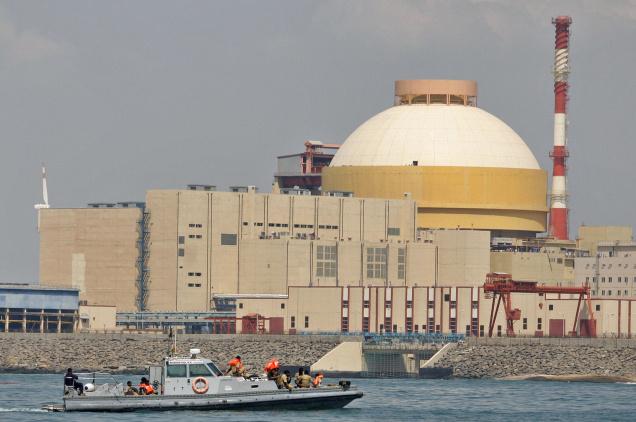I have mentioned in several blogs that Russia is working on the development of a major nuclear technology export business. Rosatom, the Russian nuclear utility owned by the Russian government says that it has twenty nine nuclear reactors in "various stages of planning and construction," in over a dozen countries including Jordan, Hungary, Egypt, Iran, Finland, Turkey and Argentina.
There are some open questions about how realistic these Russian ambitions are. The Russian government support for Russia's Rosatom is reportedly being reduced. There are also reductions in loans to foreign governments for the purchase of nuclear reactors. There have been challenges to Rosatom's announcements of all the Russian nuclear deals with foreign governments with some critics saying that many of the supposed "deals" are only letters of agreement to cooperate on peaceful uses for nuclear energy and not real contracts for reactor construction. Now it appears that Russia is considering partnering with India to sell reactors to other countries.
Late last year, during the Russian President's visit to India, a series of documents were signed as part of a "strategic vision for strengthening Indian-Russian cooperation in the peaceful use of nuclear power". Recently, during a visit to Russia by the Indian Prime Minister to the city of Ufa, delegates from India and Russia to discuss more detailed plans for nuclear cooperation between Russia and India.
Russia is proposing to increase the number of nuclear reactors it will construct in India from twelve to twenty. Russia in inviting India to be involved in the construction of Russian nuclear power plants in other countries. The new nuclear cooperation talks also include working on the "joint extraction of natural uranium and the production of nuclear fuel and atomic waste elimination." The delegates are negotiating on an advanced contract for the design of two additional reactors for the Kudankulam site in Tamil Nadu.
The two new reactors are estimated to cost about twice the previous cost estimates for two Russian reactors already constructed at Kudankulam. The price of the new reactor project is being pegged to the Russian ruble which has been depreciated recently against other currencies as a result of the international rejection of Russian actions in Ukraine.
The biggest problem for the Kudankulam reactor deal has to do with questions regarding the Indian domestic nuclear liability law. Following the horrible industrial accident at Bhopol in Bangladesh in late 1984, India passed some of the world's most stringent liability laws for such accidents. The Indian law allows manufacturers of equipment involved in industrial accidents to be sued for damages. This law has been a major impediment in sale of nuclear technology to India.
Recently Russia was secretly negotiating with South Africa for the purchase of nuclear reactors. The Russians were pressing for a clause that said the Russian companies that manufactured reactors would not be held liable if there was a nuclear accident. When these negotiations became public, there was a scandal in South Africa. It will be interesting to see how the Russians deal with the Indian law. Perhaps these new intergovernmental agreements being negotiated are an attempt to circumvent liability.
Kudankulam Nuclear Power Plant:
